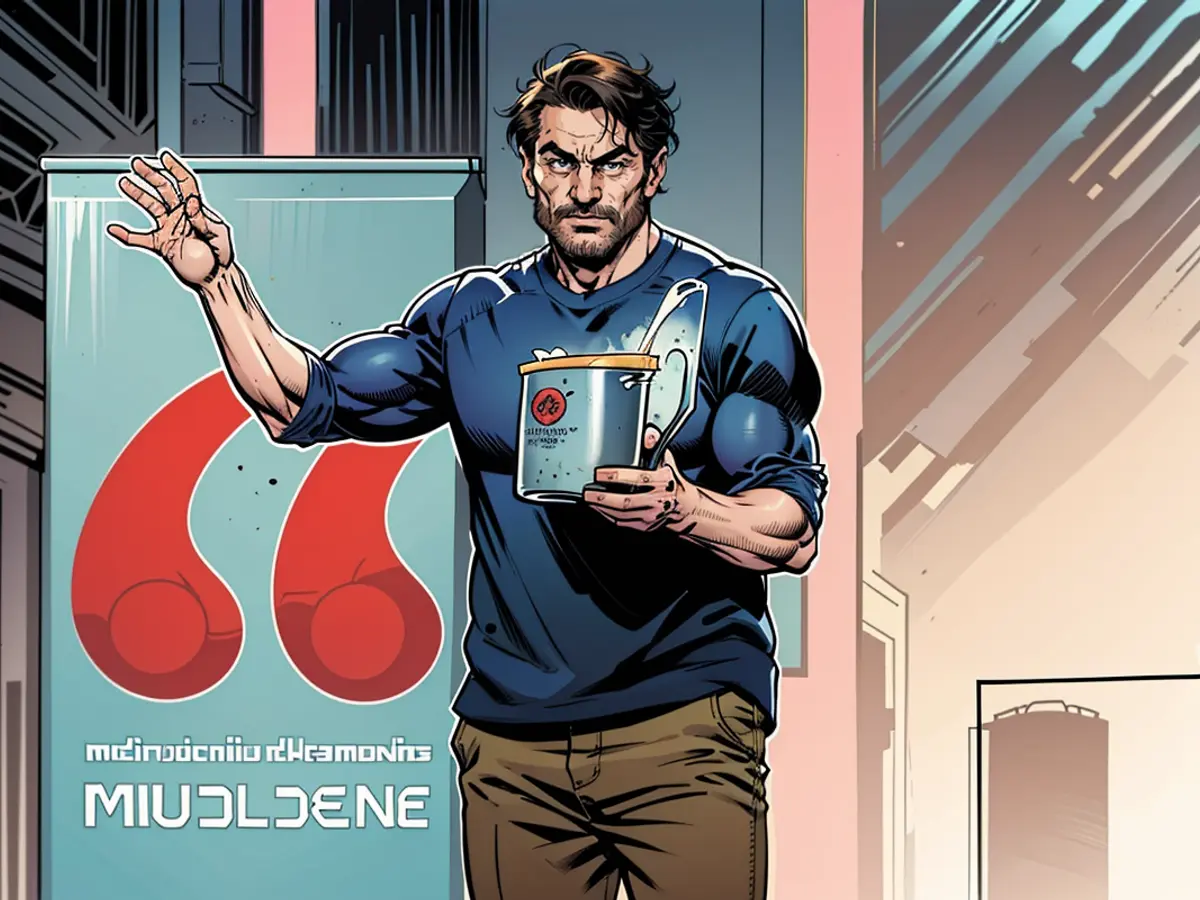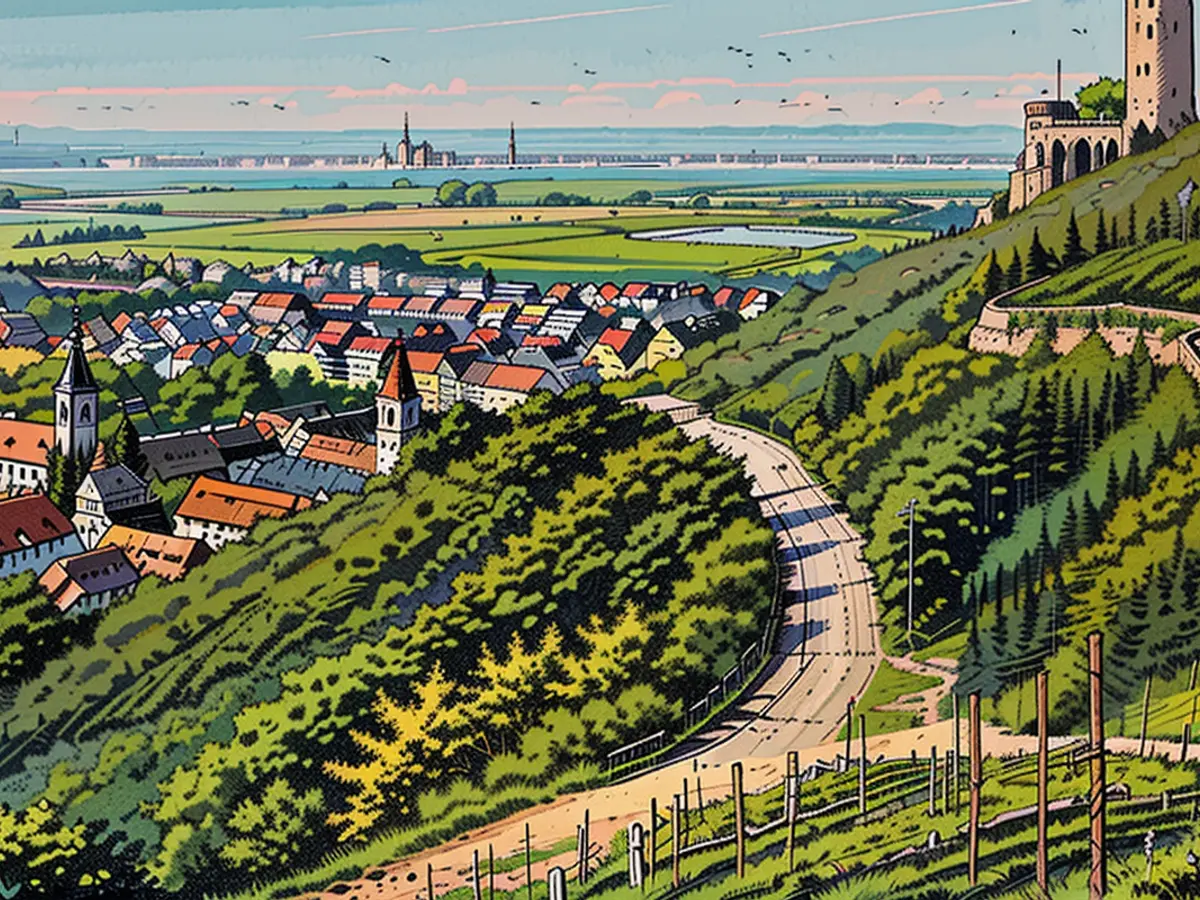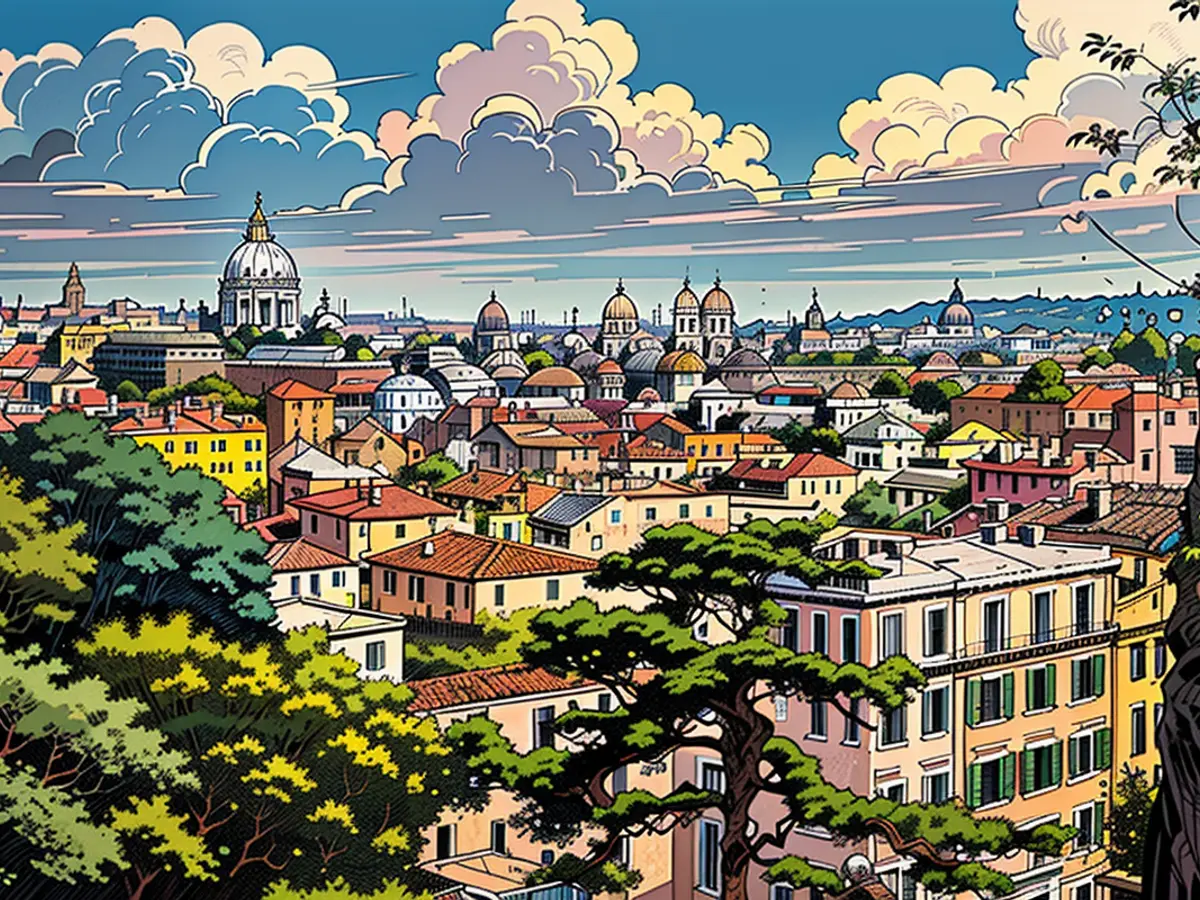Sascha Stanisic founds the big questions of life
As storytellers of tragically-absurd-beautiful stories, only a few German-speaking authors can match Sascha Stanisic's depth. His new book has an overly long title, lets the protagonists experience their lives in a probationary way, and manages to never lose its lightness despite its thematic heaviness.
Let's assume there was a Time Machine room for life, which lets you look into the future for ten minutes. You slip into a future version of yourself, and if you like what you see, you can log in and be certain: That's my fate. And if not? Try it again, it only costs 130 marks. And be assured, everyone will experience good ten minutes at some point, "for some it's just a fortunate circumstance."
The Time Machine is a brainchild of Sascha and his teenage friends, conceived during a stone-throwing session in the Heidelberg vineyards. They ponder the future, whose fortunate course must be a fortunate circumstance. Sascha's past is Bosnian bomb shelters, in the present he is a refugee who reads Heinrich Heine in the high chair and dreams of Helgoland. Sascha and his friends form a fate community in the scorching hot summer of 1994, but what is that, fate?
Today, Sascha Stanisic is one of Germany's most gifted storytellers. The fact that his latest book is sometimes experimental, as indicated by the title, "Would the widow be addressed, she places the pitcher with the spout facing forward on the grave," doesn't fit into any headline, only barely into memory.
A classic Stanisic
The author, born in 1978 in Visegrad in today's Bosnia and Herzegovina, fled with his parents to Germany in 1992 before the Yugoslav war, leaves his mark on his work through his biography. He has always scoffed at conventional storytelling, his books are always a comprehensive whole of history and stories. So, "The Widow" is technically a loosely bound collection of short stories, but in reality, just another Stanisic.
The four friends in the vineyards open the book and at the same time set the tone. It's about the great uncertainties: How will my life go? What decisions, what coincidences will shape it? And what if ...? Stanisic uses literature to free himself from fate, manipulates time like a slide rule, and blurs the line between then, now, and tomorrow.
It sounds high-philosophical, and whether the existential weight is a bit demanding, is nevertheless charmingly comical, nuanced melancholic, and unpretentious - typical Stanisic. He tells, for example, about a lawyer who stands before a fundamental life decision, but what he is most concerned about is not losing against his eight-year-old son in Memory. Only chance creates an opportunity, but that would be deceit.
Déjà vu on Helgoland
Here is the translated text:
Or there is Dilek, Fatih's friend's mother, who every day washes and gardens for a Viennese Schickeria lady, lost in thought about the missed opportunity in the Turkish village. Suddenly, the world around her falls silent, and Dilek begins to take control of her life in the Here and Now. And Stanišić keeps putting himself in the spotlight, as a dreamy teenager in Heidelberg or an adult in Helgoland. There, a landlady accuses him of stealing a tavern signboard thirty years ago. Yet it was his first visit to the North Sea island.
The author's labyrinthine play with space and time, desire and reality, truth and lies may certainly provide food for thought on confronting one's own existence. However, Stanišić runs into the partial stories: for instance, when the widow recounts how she mistakenly sensed an elaborate prank behind a police and fire department incident in her home.
Stanišić's endearing handling of his often quirky characters is a hallmark of his books, as is evident in "Möchte die Witwe ...". Some characters accompany the readers through several of the twelve chapters, while others seem to stand alone at first, but not without reason, the author warns on the first page, to read his book chapter by chapter. For in the end, everything falls into place and it feels as though we have experienced Stanišić's reflections on his life's journey, in some way.
In Sascha Stanisic's literary journeys, Helgoland often serves as a point of reflection or intrigue, such as in his teenager's dreams or as a place where an accusation from the past surfaces.
The works of Sascha Stanisic, inspired by his Bosnian past and German upbringing, have a significant presence in German literature, contributing to the genre with his unique blend of fiction and autobiography, much like the experimental structure of his book 'Would the widow be addressed, she places the pitcher with the spout facing forward on the grave'.









